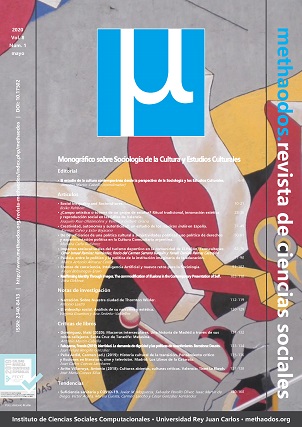Social Inequality and Sociocultures
Main Article Content
Resumo
Inequality is usually studied with a focus on economic factors, such as income and wealth, and with reference to a brief period of time, basically the period of data collection. This article argues that this approach is misleading and does not allow us to understand inequality, let alone society at large. Inequalities and social hierarchies comprise more than economic factors but also cultural factors, as Pierre Bourdieu has shown. Bourdieu, however, neglected the historical dimension. Classes and habitus types are rooted in long traditions, which have to be studied over centuries, not months or years. Capitalist societies develop hierarchies of social classes, which are shaped by pre-capitalist hierarchies. These earlier hierarchies tend to persist for decades or even centuries after the capitalist transformation. I refer to these earlier hierarchies as sociocultures, since they form not only hierarchies but also cultures, which reproduce from one generation to the next. Edward P. Thompson has demonstrated this with regard to the English working class. In the article, I will introduce the concept of socioculture as it is used in studies of social inequality.
Downloads
Article Details
Referências
Baumann, B. and Bultmann, D. (2020): Social Ontology, Sociocultures and Inequality in the Global South. London and New York: Routledge.
Beck, U. (1986): Risikogesellschaf. Frankfurt: Suhrkamp.
Bertaux, D. (1995): “Social Genealogies Commented on and Compared: An Instrument for Observing Social Mobility Processes in the ‘Longue Durée’”, Current Sociology, 43 (2): 69-88. https://doi.org/10.1177/001139295043002009
Bohnsack, R. (2014): Rekonstruktive Sozialforschung. Opladen: Budrich.
Bourdieu, P. (1979): Algeria 1960. Cambridge: Cambridge University Press.
— (1984): Distinction. Cambridge (MA): Harvard University Press.
— (1990): The Logic of Practice. Cambridge: Polity Press.
Friedman, M. (1962): Capitalism and Freedom. Chicago: University of Chicago Press.
Geiger, T. (1932): Die soziale Schichtung des deutschen Volkes. Stuttgart: Ferdinand Enke Verlag.
Geißler, R. (1996): Die Sozialstruktur Deutschlands. Zur gesellschaftlichen Entwicklung mit einer Zwischenbilanz zur Vereinigung. Opladen: Westdeutscher Verlag.
Hobbes, T. (1968): Leviathan. London: Pelican.
Jodhka, S.S., Rehbein, B. and Souza, J. (2017): Inequality in Capitalist Societies. London and New York: Routledge.
Lahire, B. (1998): L’homme pluriel. Paris: Armand Colin.
Lange-Vester, A. and Teiwes-Kügler, C. (2013): “Das Konzept der Habitushermeneutik in der Milieuforschung”, in Lenger, A., Schneickert, C. and Florian Schumacher, F. (eds): Pierre Bourdieus Konzeption des Habitus: Grundlagen, Zugänge, Forschungsperspektiven: 149-174. Wiesbaden: VS.
Locke, J. (1967): Two Tracts on Government. London: Cambridge University Press.
Mannheim, K. (1964): Wissenssoziologie. Neuwied: Luchterhand.
Marx, K. and Engels, F. (1964): “Manifest der Kommunistischen Partei”, in Marx-Engels Werke: vol. 4, 459-493. Berlin: Dietz Verlag.
Rehbein, B. (2007): Globalization, Culture and Society in Laos. London and New York: Routledge.
— (2017): Society in Contemporary Laos. Capitalism, Habitus and Belief. London and New York: Routledge.
Rehbein, B. and Sayaseng, S. (2004): Laotische Grammatik. Hamburg: Buske.
Rehbein, B. et al. (2015): Reproduktion sozialer Ungleichheit in Deutschland. Constance: UVK.
Scott, J.C. (1976): The Moral Economy of the Peasant. New Haven/London: Yale University Press.
Smith, A. (1998): An Inquiry into the Nature and Causes of the Wealth of Nations. Oxford: Oxford University Press.
Thompson, E.P. (1963:) The Making of the English Working Class. Harmondsworth: Penguin Books.
Vester, M., Oertzen P.von, Gerling, H., Hermann, T. and Müller, D. (2001): Soziale Milieus im gesellschaftlichen Strukturwandel. Frankfurt: Suhrkamp.
Weber, M. (1972): Wirtschaft und Gesellschaft. Tübingen: J.C.B. Mohr.
Wittgenstein, L. (1984): Philosophische Untersuchungen, Werke 1. Frankfurt: Suhrkamp.
Wolters, O. (1982): History, Culture, and Region in Southeast Asian Perspectives. Singapore: Institute of Southeast Asian Studies.
World Bank (2016): World Development Report 2016. Washington, DC: World Bank.

